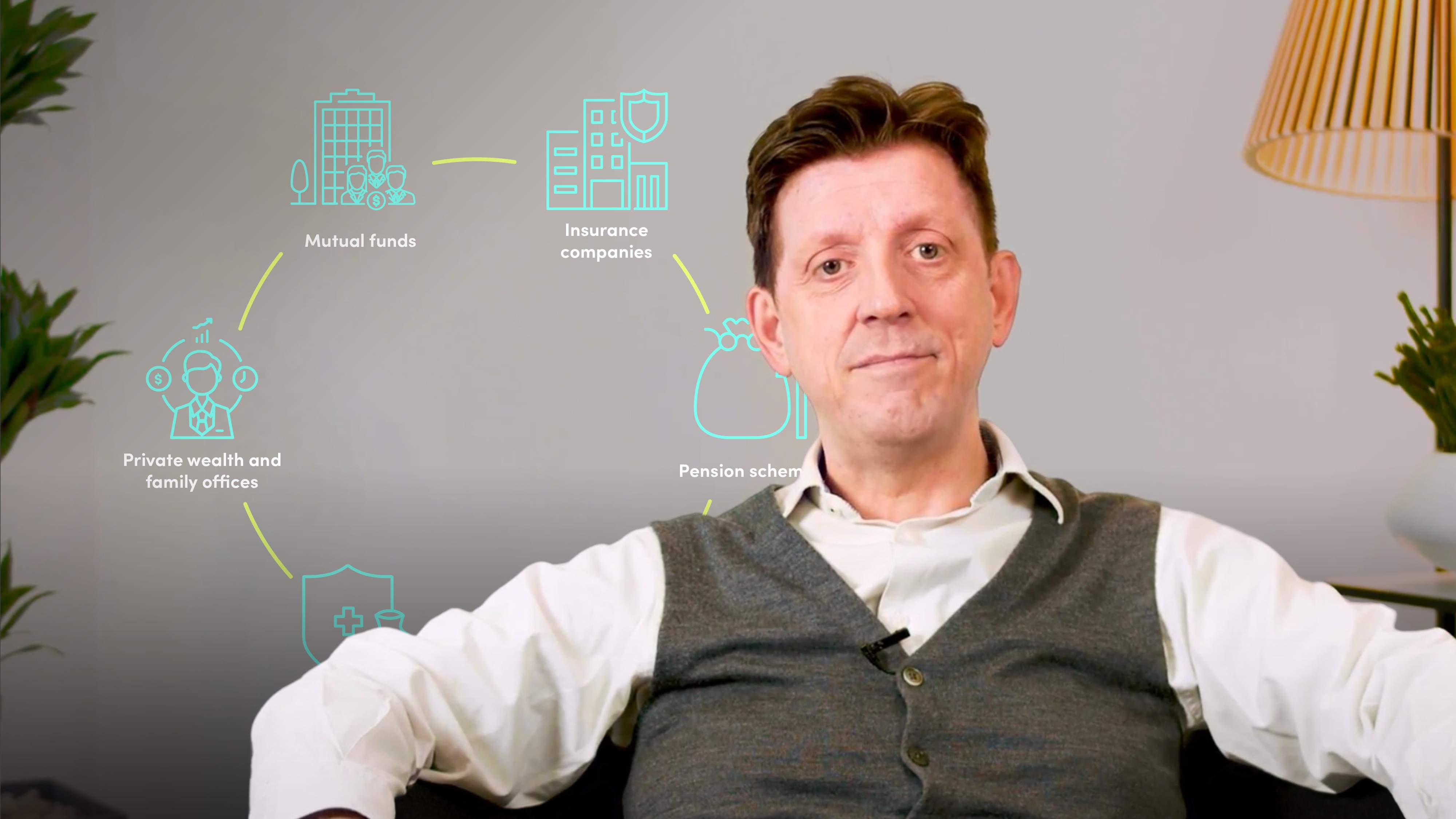
Types of Investors in Financial Markets

Lindsey Matthews
30 years: Risk management & derivatives trading
So far in our discussions about the financial markets we’ve only mentioned that there are people with excess capital looking to invest it. This video will cover off those main investors explaining their different investment objectives and types.
So far in our discussions about the financial markets we’ve only mentioned that there are people with excess capital looking to invest it. This video will cover off those main investors explaining their different investment objectives and types.

Types of Investors in Financial Markets
8 mins 35 secs
Key learning objectives:
Understand the reason for these larger asset owners to invest in the financial markets
Outline some of the largest asset owners
Overview:
The type of lenders within the financial markets can be characterised as individuals, corporates or governments, but within the subsets are different types of investors which don’t all have the same goals. Individuals can buy shares, or government bonds, however most of the money that buys these securities comes from much larger asset owners including insurance companies, pension schemes, sovereign wealth funds, endowments and foundations, private wealth and family offices as well as mutual funds and other similar structures.
Why do insurance companies invest?
Insurance companies have to invest some of their premium income to generate returns which are used to pay out insurance claims when they fall due. Insurance companies typically invest substantially in the bond markets as well as in equities and other growth assets.
Why do pension companies invest?
Pension schemes invest scheme assets in order to generate returns which are used to pay pensions to members in the future. They will invest significantly in Government bonds and high quality corporate bonds as well as equities and other growth assets, such as private equity funds, infrastructure, real estate and even hedge funds.
Defined benefit pension schemes pay promised amounts to members, regardless of investment performance. Defined contribution pension schemes deliver a return equal to the performance on the underlying assets and so the risk is taken by the individual member.
Why do sovereign wealth funds invest?
Some of the biggest investors in the world manage the assets of richer countries. Given their size and broad range of investment objectives these funds tend to invest in the public and private capital markets across a very broad range of instruments, employing sophisticated investment offices.
Why do endowments and foundations invest?
There are a great many charitable endowments and foundations set up to receive donations for, and to pay out funding to, schools, colleges and universities, religious organisations, art galleries. These charities and foundations have $10bns invested. They generally have a policy on how much of the endowment can be paid out to fund their activities each year and how much must remain invested.
They will invest in bonds and equities in order to generate income – to be spent on charitable purposes – but also growth assets – in order to be able to generate more income in the future for those purposes.
Why do private wealth offices and family offices invest?
Some individuals are very wealthy and invest directly in the market. They, and their assets, are commonly referred to as private wealth. Some individuals are so wealthy that they set up an entire investment office for the management of their assets - these are called family offices. These offices are often seeking to generate an income and to grow capital at the same time.

Lindsey Matthews
There are no available Videos from "Lindsey Matthews"

